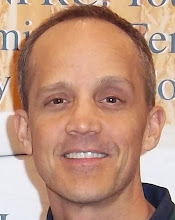 After painting a very bleak picture of humanity’s fate if mankind continues to “take” from the world in an unsustainable way, Dr. Ross McCluney used his presentation during the Opening Session of the NFRC Spring Membership Meeting to describe changes that society must make to achieve lasting global balance and sustainability.
After painting a very bleak picture of humanity’s fate if mankind continues to “take” from the world in an unsustainable way, Dr. Ross McCluney used his presentation during the Opening Session of the NFRC Spring Membership Meeting to describe changes that society must make to achieve lasting global balance and sustainability.According to McCluney, the problem began about 10,000 years ago when humans stopped being “leavers” who lived in balance with the land’s ability to support them and began to act like “takers” who consumed more than nature could provide.
Though the emergence of humans as takers led to the establishment of civilization and an unprecedented period of advancement in every aspect of society, McCluney said that the Earth’s ability to provide the resources necessary to support an ever-growing, more affluent population is reaching a tipping point.
“If we do not take measures to bring us back into balance, we are heading for an environmental catastrophe,” McCluney said.
Fortunately, McCluney said, mankind has one unique attribute that distinguishes us from all other life: intelligence. Though intelligence doesn’t guarantee success, McCluney said that if we apply it properly we can achieve a sustainable future through:
-- personal reform, in which we as individuals lead by example and make simple changes in our lives that reduce our consumption of resources and cause us to live a more sustainable lifestyle;
-- organizational reform, in which we all lobby for the groups and entities to which we belong to act more sustainably; and
-- political reform, in which we write to and converse frequently with our elected leaders so that they understand that we as a society consider sustainability to be an all-important goal.
McCluney also said that NFRC has a role to play by encouraging its members to continue to “green” their products by ensuring that those products get credit for good energy performance. “NFRC operates in the public interest and hence in the Earth’s interest,” he said.
McCluney closed on a hopeful note. “We can change the world, or at least improve humanity’s chances of living sustainably and well, far into the future,” he said.


No comments:
Post a Comment